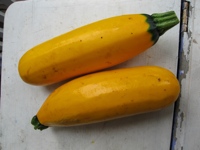Hi All—
The ground outside is frozen, the wind is blowing hard, and I am happy to be curled up in front of a fire drinking a cup of tea. Meanwhile, John is ordering seed, arranging housing and transportation for next year’s farm hands, and negotiating deals with local farm owners to use some of their land to farm and their barns to house his equipment. By early March he’ll start his seedlings so they will be ready to transplant once the ground thaws. I’m glad I’ve got my fire.
Just about this time of year, every year for the past eight years, I’ve opened my mailbox to a letter from Shelley reminding me that it was time to renew my membership in the Bloomfield-Montclair CSA. At first joining the CSA was about trying to get expensive organic produce cheap. But along the way, with Shelley’s wonderful weekly newsletters came a sense of being part of something good, supporting something outside the industrial food chain and connected instead to the people around me.
You may have seen an article the New York Times recently ran in its magazine section about nutrition and the American diet. It talked about going back to the days when we simply ate food, when we didn’t think about the grams of carbohydrates, fats or protein in each bite. When we didn’t need to know the percentage of daily recommended levels of folic acid, vitamin B’s, antioxidants, iron, or calcium. When we simply ate a variety of foods and didn’t eat quite so much.
Also in the NYT’s article, we learned that new farming processes essentially farm the nutrients right out of our crops. “Chemical fertilizers simplify the chemistry of the soil, which in turn appears to simplify the chemistry of the food grown in that soil.” Now we must fortify our food by sprinkling vitamins and minerals back over the foods, hermetically seal them, and develop advertising budgets to inform the consumer of exactly what is in everything we eat. Ok, ok, you say, I get it. Eat organic. Easy enough. By why join a CSA?
Joining our CSA is not only about eating organic. It’s also about eating local. When you take a bite of freshly picked sugar snap peas, roast a head of cauliflower or make a soup with white acorn squash pulled from the field the day before, you know what you’re getting. Local produce picked just in time to eat simply tastes better. It tastes the way vegetables used to taste.
Eating local vegetables is also good for the environment. It takes a lot of gas to fly grapes form Peru. You don’t have to add solar panels to your roof (although you surely can if you have the sun exposure) or keep your thermostat down to 60 degrees at night to be part of something. You may not think of yourself as an activist, but being part of a CSA is being part of a solution.
Community Supported Agriculture takes members to a new place – where food and emotion and a sense of civic duty are one. It can be too intense for some people – the feelings of guilt when they don’t eat their greens is too much – and they drop out. But for others it becomes a bright spot in their lives. It serves to connect the farmer, the land and the food. They can pass the experience on to their children who grow up knowing a farmer and eating freshly picked beets, not slices out of a can. In this way, perhaps we can salvage regional agriculture in this country and be assured that our grandchildren will know what broccoli actually tastes like.
So this year you open your mailbox not to a letter from Shelley, but the message is the same. It’s time to renew your membership. It’s time to sign on again and be part of something good.
Enid Melville
February 21, 2007
 This is a bit of a fake out. It is a summer squash and it is yellow, but it is not a yellow summer squash. This is really a yellow zuchini. Aside from the color, the texture and size of the seeds is just what you would expect from the dark green variety of zuchini.
This is a bit of a fake out. It is a summer squash and it is yellow, but it is not a yellow summer squash. This is really a yellow zuchini. Aside from the color, the texture and size of the seeds is just what you would expect from the dark green variety of zuchini.